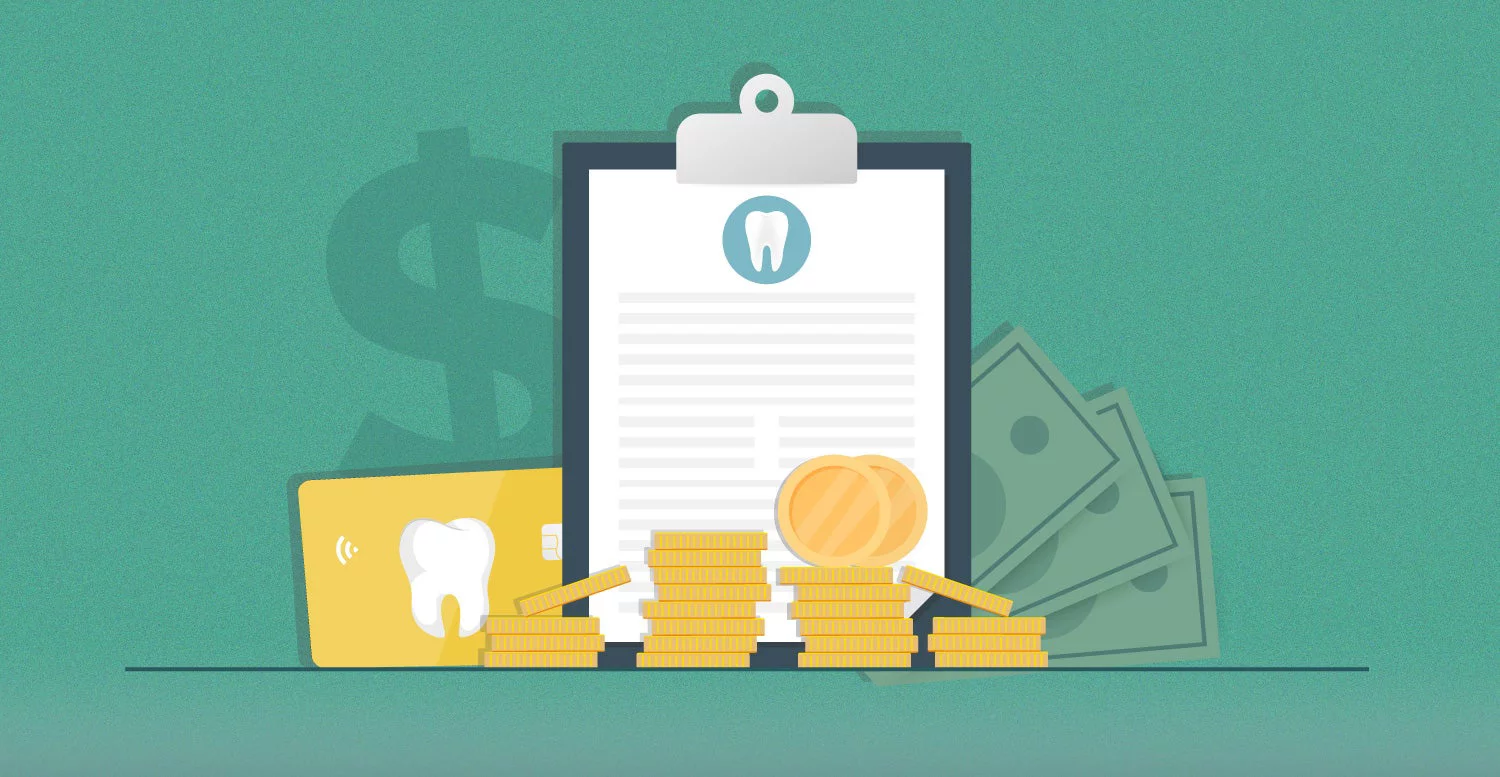Tooth care begins as soon as a baby’s teeth erupt in their mouth and is necessary for a person's entire life. Along with brushing twice a day and flossing, routine dental visits help keep teeth and gums healthy.
Managing your dental expenses includes more than just routine checkups with your dentist — dental care emergencies such as a painful toothache or a chipped tooth need immediate attention. Financially preparing for potential expenses adds comfort during these stressful situations.
Managing Dental Expenses for Young Adults
If you had braces as a teenager, you have an advantage in the oral health game. More than aesthetic reasons, straightening your teeth makes it easier to clean them and with significantly lower chances of developing cavities. With fewer oral complications, a yearly visit with your dentist will ensure your mouth is healthy and on the right track to oral health.

If your employer does not offer dental benefits, find a dentist in your community that provides other affordable dental options. Some dentists offer in-house discounts or payment plans.
Phasing Out of Family Insurance
For families with dental insurance, as you approach your 18th birthday, your parents may be worried about how you will manage your dental expenses. The Affordable Care Act ensures that medical insurance covers children until they turn 26 years old. But this does not apply to dental insurance. The cutoff age when you will no longer be covered under your parents' dental insurance benefits is up to your parents' provider.
Along with dental plans that provide savings from individual dental offices, young adults can apply for a dental credit card that can be used for dental treatments and procedures.
Managing Dental Expenses for Adults
If you are among the slightly less than 50% of Americans who do not have dental insurance, making a budget for dental care expenses and knowing what savings and financing options are available to you can make a huge difference.
For dental care for adults without insurance, many dental financing options today can compare with the coverage insurance provides. These financing options enable you to pay back your dental costs without paying a monthly insurance premium or deductible or being restrained by coverage maximums.
Maximizing Family Dental Insurance
- What is your coverage maximum? The insurance company will no longer pay for your dental bills when you reach this limit.
- What is your deductible? This is how much you must pay out of pocket before your insurance starts covering expenses.
- Does your insurance cover orthodontist bills for you and your children? Coverage varies on who it applies to and how much of the total will be covered.
Managing Dental Expenses for Seniors

As you age, you become susceptible to wear and tear on your teeth and gums, which makes dental appointments even more important. According to the CDC, 1 in 5 seniors over the age of 65 have untreated tooth decay. Even more alarming is that total tooth loss is almost 1 in 5 for adults 65 and older.
Finding Discounted Dental Plan
Because dental insurance often comes through an employer and Medicare does not cover dental care in most cases, seniors can get the care they need by using a discounted dental plan. A plan like the Smile Generation Dental Plan provides patients with significant discounts on procedures and treatments needed to keep their mouth healthy.
Budgeting for Treatment
- Canceling streaming services you rarely use
- Opting for a less expensive car with a lower monthly payment
- Intentionally eating at home instead of eating out
- Making a grocery budget and sticking to it
- Avoiding shopping when you are hungry
- Refinancing your home
- Finding a home with lower rent or mortgage payments
Affording Dental Treatment Through Every Stage
If you need a dentist who can provide you with alternative solutions to paying for your dental expenses, Smile Generation's Find a Dentist tool can point you in the right direction so you get the right dentist that helps fit dental care into your budget. Talk to a dentist today about how to effectively manage your dental expenses.
Find your trusted, local dentist today!
Sources
- Blackwell, Debra L., Maria A. Villarroel, Tina Norris, "Regional Variation of Private Dental Coverage and Care Among Dentate Adults Aged 18-64 in the United States, 204-2017." CDC, May 2019, https://www.cdc.gov/nchs/products/databriefs/db336.htm
- Choi, Yoon Young, "Relationship Between Orthodontic Treatment and Dental Caries: Results from a National Survey." NIH, 16 Oct. 2020, https://www.ncbi.nlm.nih.gov/pmc/articles/PMC9379177/
- "Dental Services." Medicare.gov, 26 July 2023, https://www.medicare.gov/coverage/dental-services
- "Older Adult Oral Health." CDC, 5 May 2021, https://www.cdc.gov/oralhealth/basics/adult-oral-health/adult_older.htm
- "Young Adults and the Affordable Care Act: Protecting Young Adults and Eliminating Burdens on Businesses and Families FAQs." Department of Labor, 26 July 2023, https://www.dol.gov/agencies/ebsa/about-ebsa/our-activities/resource-center/faqs/young-adult-and-aca
Smile Generation blog articles are reviewed by a licensed dental professional before publishing. However, we present this information for educational purposes only with the intent to promote readers’ understanding of oral health and oral healthcare treatment options and technology. We do not intend for our blog content to substitute for professional dental care and clinical advice, diagnosis, or treatment planning provided by a licensed dental professional. Smile Generation always recommends seeking the advice of a dentist, physician, or other licensed healthcare professional for a dental or medical condition or treatment.








